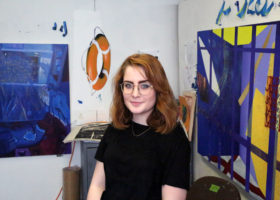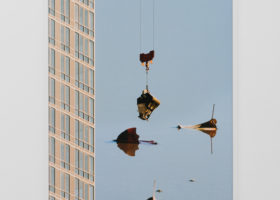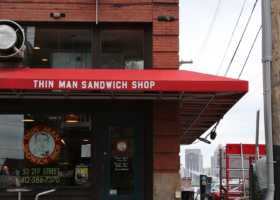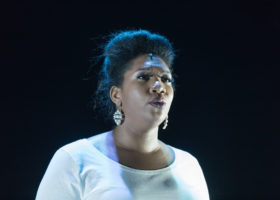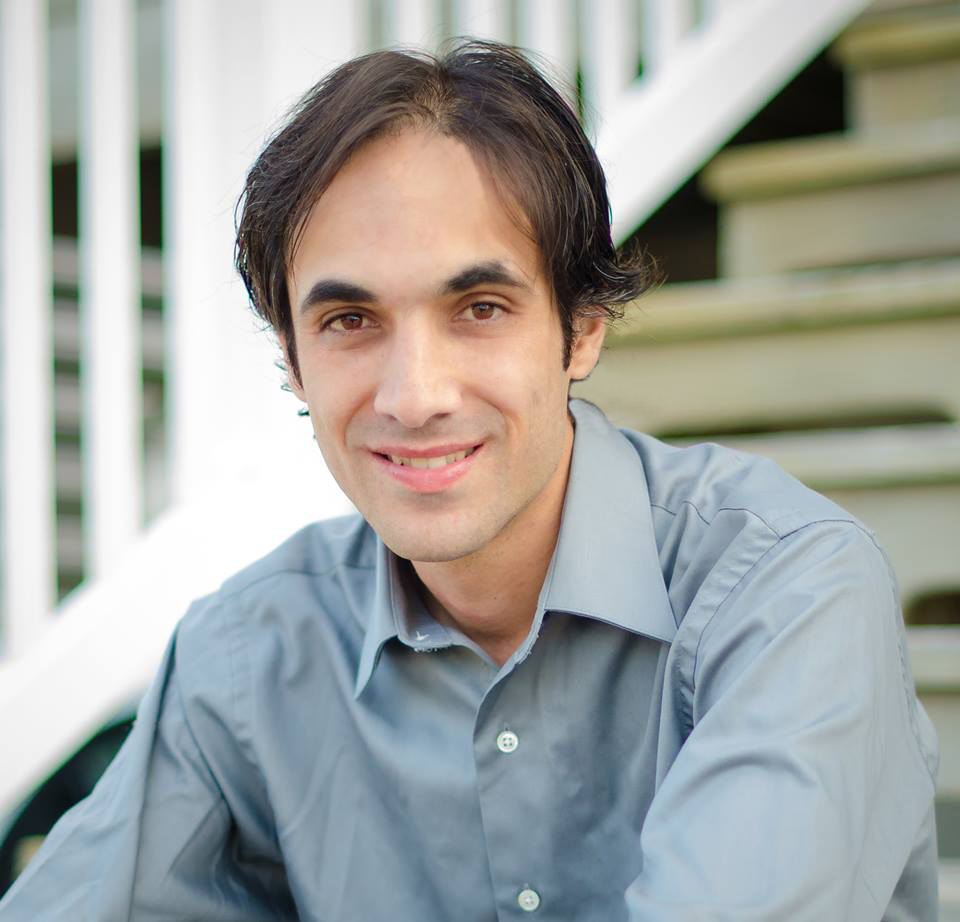
Hailing from Colombia, composer Federico Garcia-De Castro has been in a process of building since moving to Pittsburgh in 2001. First, he received his graduate degree from the University of Pittsburgh. In 2007, a small group of composers founded Alia Musica Pittsburgh as an outlet for performing their compositions. Over the past ten years, Alia Musica Pittsburgh has served as a stepping stone for a number of local composers, while also achieving larger feats: producing two years of Pittsburgh Festival of New Music, in 2014 and 2016, and bringing a string of serious composers to town, including Frederic Rzewski, Ken Ueno, and Robert Dick. Garcia-De Castro’s own compositions have expanded beyond Pittsburgh’s borders, with performances in Austria, Italy, Australia, Panama, and Thailand.
On November 13, the new Pittsburgh ensemble Nat 28 presents Portraits: The Music of Federico Garcia-De Castro. I met with Garcia-De Castro to discuss his past ten years in composition, Alia Musica’s role in Pittsburgh’s changing new music scene, and what computer programming and Donald Trump have to do with music today.
![]()
David Bernabo: Where did the idea for the portrait concert originate?
Federico Garcia-De Castro: This last June, I went to a concert that was billed as the inaugural concert of a new group, Nat 28, and it turned out that they were really great. I was impressed with a few things: one was the programing. They found really serious modern music for their instruments. There was some real digging. They found a piece by [Elliott] Carter, for instance, for harp and oboe, that was a treat to hear. And I was also impressed by how they played. The first piece was for solo cello. My first thought was that I needed to get this guy to play one of my cello pieces. So, I talked to Zoe [Sorrell, flutist and artistic director of Nat 28] about the possibility of devoting a concert to my music. Only then did I realize that it’s been ten years since I finished grad school.
DB: And this is a new Pittsburgh ensemble?
FG: Yes, Pittsburgh. They are recent CMU graduates. Excellent performers, really, truly interested in the music and committed to staying in Pittsburgh.
DB: Let’s jump back ten years. What were your goals with composing then?
FG: It’s weird because I had spent five years in grad school for compositional theory, but I had devoted a lot of time to historical and musicological research. I don’t think I saw myself primarily as a composer, although I never changed majors and did graduate as a composer. I was very much into research, historical and philosophical, not necessarily musical research. But nothing panned out of that.
DB: What were you trying to do with that research?
FG: I had just gotten a PhD, so the next step was to get a job teaching. I was pushing the fact that I could teach history classes. I saw myself as teaching at a university, but also continuing my research. But what panned out first was the foundation of Alia Musica [Pittsburgh]. I always say that [Alia Musica] was just something that happened to us. The conditions, the circumstances, the need was there for something like that. ELCO [Eclectic Laboratory Chamber Orchestra, a Pittsburgh music ensemble that mines contemporary classical, rock, and other sources of music] was also created at the same time.
DB: Were you composing at the same time that Alia Musica started? Or did Alia Musica push you to compose more?
FG: In 2004/2005, I had been writing my dissertation piece, and my other main piece was a septet written in 2004. But that was about it, not much more. When we started with Alia Musica, we all had to write a piece for the first concert. So, I was composing by default at that time.
DB: Did you have specific goals with those compositions?
FG: For a while, composing had been out of duty. Maybe I had a few ideas, but I didn’t have the motivation or a real reason to figure them out fully.
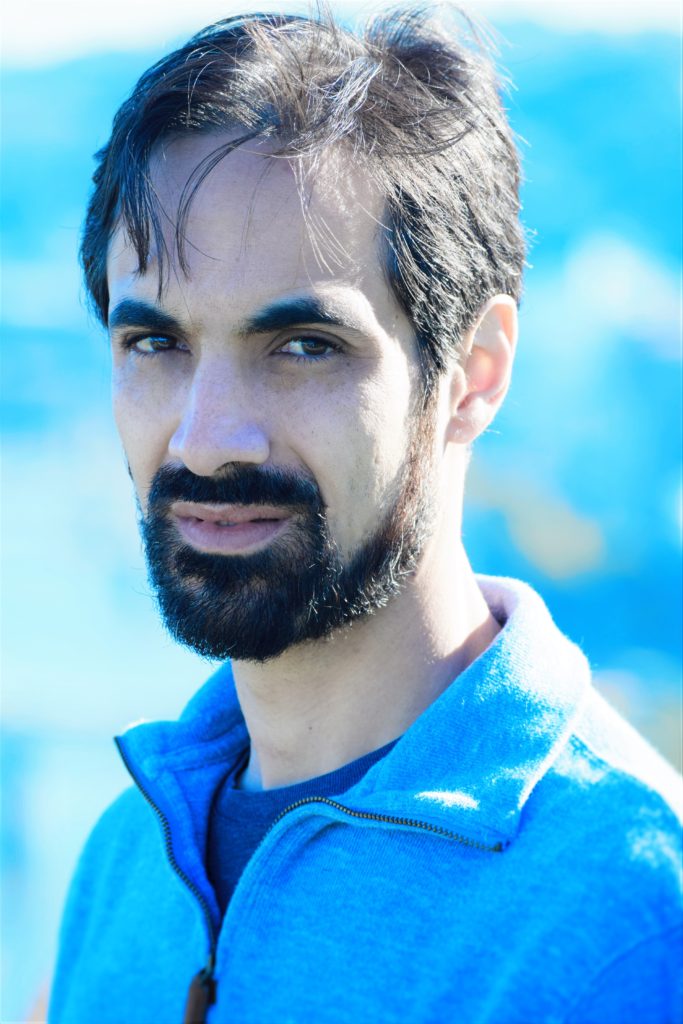
DB: What caused the shift with your work?
FG: A couple of years ago, I realized that I’ve always tried to be something other than a composer. I got into musicology, and that was a way to not look composition in the eye. Then I started conducting in Alia Musica, and all the while I had an interest in [computer] programming, designing a new music notation program.
One time I was in Colombia, visiting my family, [in] 2012 or 2014. I went through some papers that my mom had saved from my childhood days. I saw a paper with an eight-year-old’s handwriting, illustrating a computer program. I realized that I had been a programmer before I was a musician, before I knew that music was interesting to me. Up until then, I thought that my programming was a joke. Then I realized that I should not feel guilty, that programming has been a part of my life. But that made me question why I got into composition. What does composition provide that language doesn’t?
In that light, I should add that I’ve always been interested in language, linguistics. That was what I read at night, when I used to read—that was before YouTube. The tying thread [between programming, composition, and the interest in language] is syntax. That’s what’s special about music. Natural and artificial languages use syntax to create meaning. Music is syntax. In principle, music is so abstract that it is discourse about syntax—what recurs, what can go after, what’s breaking a rule, what is a rule. Only music can be a discourse that means nothing other than the syntax.
DB: How do you manage creating rules within a piece with adhering to larger rules created throughout the history of music?
FG: The rules are not laws; they’re more like the rules of syntax. When we break the rules of syntax in language for some special effect, it’s not [rebellious], we just do it. When I’m composing, I’m trying to find out the rules of that specific piece, not the rules of all music.
DB: How do you factor this idea of syntax into the concept of context? If you choose this instrument, it can trigger a certain reaction in the listener. The instrument can point to something specific and meaning can be derived from associations in another piece.
FG: You’re hitting the nail on the head. [Syntax] is not everything that I get from composing. When I look at my most successful music, it’s not all intellectual. [Composition] is all about beauty. The best example is a piece that we’ll play in the concert, a piece for marimba, guitar, and piano. The idea is that there are many ways to play a note. There are maybe twelve ways to play a “B” note on a guitar—the different strings, harmonics, tapping. There are four or five more ways on the piano. The marimba has different mallets. So, that was the whole idea of the piece, this syntax, this purely intellectual idea. We start with one note and different ways of playing the note, and then we’ll get to other ideas. But when I started composing—doing this repeated note thing and then let the notes resonate—after the resonance, I’d resume with the rhythm. Then another resonance. I wasn’t finding my way into the development of the piece. Each resonance just suggested the following resonance. I thought, how am I going to get to all my other plans for this piece? What I realized was that the sections with the resonances was not the beginning, it was the end. That was the insight to realize that this was not about syntax. The syntax is too abstract. Other elements go into composing.
DB: When we were talking a few months ago, you mentioned that you and Alia Musica were able to secure a number of residencies and grants to keep things moving forward. How does that impact your work in Pittsburgh?
FG: About four years ago, there was a point in my life where I had to decide what to do next. Many of the options included leaving Pittsburgh. But that’s how it always works; there was the next grant for some amazing dream—dream, not goal—that made me stay. There was the concert at the New Hazlett Theater in 2014 for their CSA series. Last year, I got one of the individual artist grants [from The Pittsburgh Foundation and The Heinz Endowments]. This next concert with Nat 28, a portrait concert, is a dream for any composer. It’s one more gift from Pittsburgh, and now, who am I kidding, I’m not going to leave.
DB: Going back to Alia Musica—this was a composer-led group, created to perform compositions by the composers in the group. Was the group trying to create a music scene that you wanted to see?
FG-DC: The idea of the ensemble was not as a touring ensemble. The real need in Pittsburgh at that time was an outlet for composers. That meant that if we had fixed instrumentation, that is not really an outlet for composers. That is an outlet for the performers. What if the composer wants to write for [different instruments]? When we have commissioned pieces, when composers write for a certain occasion, those pieces are not as good as the pieces that composers write because they need to write them. So, we didn’t want to fix instrumentation. We would program according to the pieces that we have to play. That was the main focus for about five years, and that concept is still with us.
There have been shifts. We’ve acquired other roles other than being an outlet for composers. And that’s OK, because there are other ensembles around now to provide outlets for composers. As of May 2016, there were seven local ensembles worthy of being featured in the Festival of New Music. When we started, there was nothing. We started a few months after IonSound, which was fixed ensemble, and around the same time as ELCO, but when you talk to people now, they can’t imagine what it was like before.
DB: I’m curious about where contemporary or new music is at in Pittsburgh. When it comes to new compositions, I generally feel like people should be striving to break new ground, to create things that haven’t been done before. Is that just an idealistic viewpoint? Is that irresponsible?
FG: You ask where new music is at now, and I think it’s in trouble for many reasons. There are always changes in the culture, in the offering, and in the expectations of an audience, and the problem is how we adapt to that. The idea that comes to the forefront of my mind is “the bubble.” You see this in the elections. How is it possible that the Brexit polls and the polls for the referendum in Colombia were certain that the “good” side was going to win, but then it turns out that we were wrong? This whole thing with Trump is the same thing. It’s because we are in the bubble. It doesn’t fit in our heads that people will vote for Brexit. We can keep thinking that people are illiterate and uneducated, bigots and racists, but the point is that we are missing something, we are not understanding something.
So, taking the political side and moving to new music and the arts in general, it’s the same thing: We are in the bubble. We write music that has great counterpoint or great technique or develops a new way to play an instrument. In the bubble, it’s great, people love it. But if we scrape a toothbrush on a string and it makes a cool sound, we need to ask if it is a good sound. People in the bubble will be immediately amazed by the finding, but we need to fulfill some other things that we aren’t asking. We need to check in with the rest of the world. We need to accept that everyone can have a judgment.
And then the other side is pandering. You see that the world doesn’t care [about what you’re doing] and you pander to them. There’s been a lot of this in the orchestral world in the past ten-to-twelve years. People may be [initially] excited when they hear this, but they won’t be coming back. This fluff won’t get them out of the house for the next concert.
So, we don’t need to pander to the audience, what we need to do is challenge them. The music needs to be good—if you challenge them, but at the end of the road there is nothing, they won’t come back. But if you challenge them in a joint discovery, people appreciate that. We also need to challenge ourselves. That is the success of virtuosity. There is genuine engagement, and just like people like seeing the technical challenge of virtuosity, I think people like to see a composer challenge themselves, too.
![]()
Nat 28 will be performing Portraits: The Music of Federico Garcia-De Castro at the First Unitarian Church of Pittsburgh on November 13 at 5:30 p.m. Check out the program below:
Romanza for guitar (2016). Devin Sherman, guitar
Consequence for oboe and piano (2000). Natalie Beckenbaugh, oboe; Brian Gilling, piano
Bajo el Hechizo for marimba, guitar, and piano (2009). Aaron Butler, marimba; Devin Sherman, guitar; Amaury Morales, piano
Rendering for solo piano (2014). Brian Gilling, piano
Calco for solo cello (2014). Will Teegarden, cello
Endecaphony for woodwind quartet, string quartet, piano, harp, and pitched percussion. Brian Gilling, conductor.
